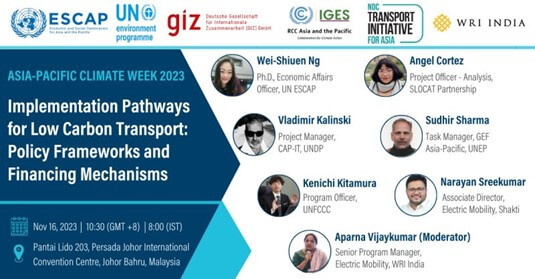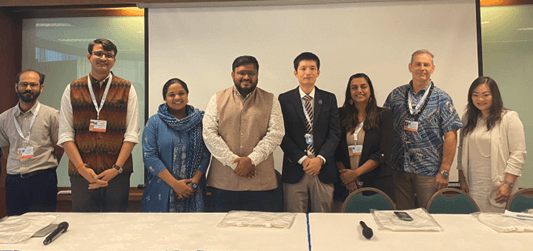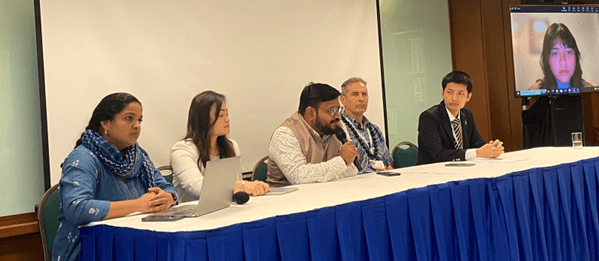
Asia Pacific Climate Week 2023 was co-organised by the Economic and Social Commission for Asia and the Pacific (ESCAP), the United Nations Environment Programme (UNEP), the UNFCCC-IGES Regional Collaboration Centre Asia and the Pacific, GIZ, World Resources Institute (WRI) India, and the Nationally Determined Contributions Transport Initiative for Asia (NDC-TIA) on November 16, 2023, in Johor Bahru, Malaysia.

In the discussions on Cities, Urban and Rural Settlements, Infrastructure, and Transport, two side events were organised to assess low-carbon transport frameworks and pathways in countries across the Asia Pacific region. This region was anticipated to experience the fastest-growing transport sector emissions globally in the coming decades. The outcomes of these discussions would contribute to the Global Stocktake (GST) at COP 28 and other regional or global transport policy dialogues.
Shakti Sustainable Energy Foundation participated in a side event on ‘Implementation Pathways for Low Carbon Transport: Policy Frameworks and Financing Mechanisms.’ The discussions centered on transport decarbonisation targets in country NDCs and LT-LEDS, along with cooperation mechanisms and strategies for implementation. This session brought together country representatives, financing institutions, and international development partners to examine progress on implementation pathways.
The objective of this side event included identifying policy and regulatory frameworks and financing instruments that enabled low-carbon transport development and highlighting best practices for these among the countries of the Asia Pacific. Country progress on transport decarbonisation targets and challenges and opportunities for impactful action was captured. Key discussion outcomes, including policy and financing action for transport decarbonisation, informed the Global Stocktake (GST) and were brought forward to other transport policy dialogues at COP 28.

Narayankumar Sreekumar, Associate Director, Electric Mobility Initiative, Shakti, said “Establishing a resilient payment security mechanism and uniting both public and private investments are essential for advancing the electrification of public transportation. To achieve this goal, dedicated initiatives are required to integrate public transport with renewable power sources, paving the way for a sustainable future.”
